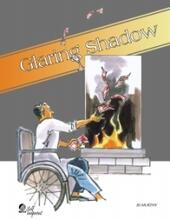The spiritual ethos and the philosophical outlook that the Bhagvad - Gita postulates paves the way for the liberation of man, who, as Rousseau said, ‘being born free, is everywhere in chains’. But equally it is a mirror of human psychology, which enables man to discern his debilities for appropriate redressal. All the same, the boon of an oral tradition that kept it alive for over two millennia became its bane with the proliferation of interpolations therein. Besides muddying its pristine philosophy, these insertions affect the sequential conformity and structural economy of the grand discourse. What is worse, to the chagrin of the majority of the Hindus, some of these legitimize the inimical caste system while upholding the priestly perks and prejudices. This rendition seeks to restore to the Gita, its original character by ridding it of hundred and nine interpolations, which tend to keep the skeptics away from it. And ironically these muddle the understanding as well. In the theatre of man as nothing surpasses the drama of war, the stage for unveiling the Gita’s unrivalled philosophy was set on the battleground of Kurukshetra at the threshold of the battle of Mahabharata.

by BS Murthy

BS Murthy
BS Murthy is an Indian novelist, playwright, short story, non-fiction 'n articles writer, translator, a 'little' thinker and a budding philosopher in ‘Addendum to Evolution: Origins of the World by Eastern Speculative Philosophy’ that was originally published in The Examined Life On-Line Philosophy Journal, Vol. 05 Issue 18, Summer 2004.
As an Amazon Associate, humanmade.net earn from qualifying purchases.



Comments